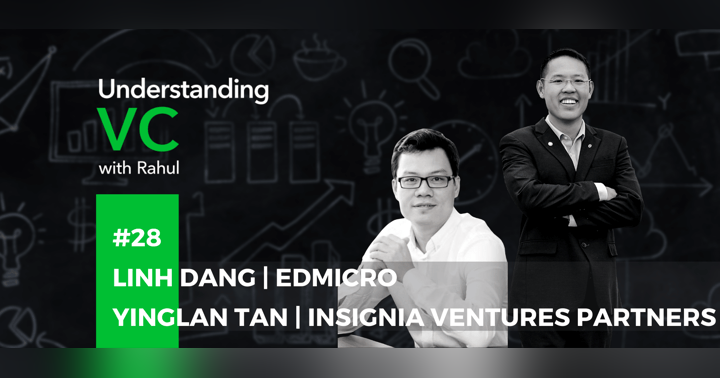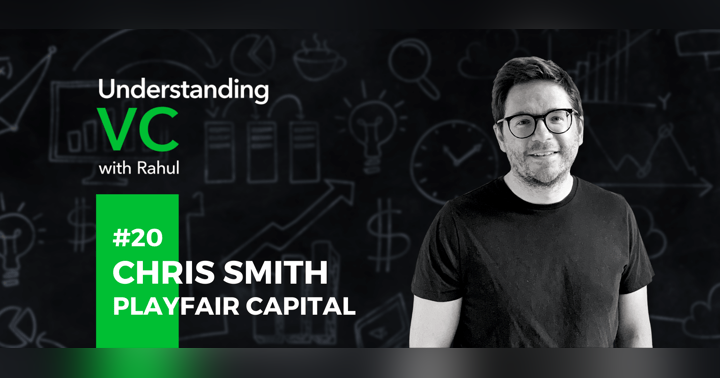Understanding VC: #2 The Algorithm of Self-Improvement: In Conversation with Ivan Kirigin from Tango.vc

In the second episode of Understanding VC, we talked to Ivan Kirigin, an investor at Tango.vc, who is particularly interested in robotics and machine learning. Through our conversation with Ivan, we explored the vast possibilities that the area of robotics holds for entrepreneurs and investors. Tango.vc itself is a seed-stage fund focused on robotics and machine learning, and owing to Ivan’s expertise in this area, we were able to learn crucial strategic prerequisites for founders looking to venture into this field.
A peek into Ivan’s work ethic and mindset revealed to us the importance of self-improvement, effective approaches towards optimizing product and distribution, patterns of networking, and how to have a strategic vision in order to get the timing right. Lastly, we also enquired him about the due diligence necessary on the founders’ part so as to establish a viable relationship with a VC. Ivan began by stressing the benefits of expertise and experience in any particular field, but at the same time, he highlighted the irreplaceability of experimenting when it comes to growth and expansion.
If you get down to the fundamentals of what a growth team does, it is essentially a bunch of science experiments.
For a successful startup plan, it is necessary for the founders and investors to join forces by contributing their knowledge and contacts so that its maximum potential can be tapped. Ivan’s recent investment in a rocket company called Stoke is a manifestation of the same process. “You know people talk about rocket science like it’s very very hard,” Ivan confessed the gaps in his knowledge about the technicalities of such a product, but his interest was fanned precisely due to the curiosity invoked by those gaps. Furthermore, Stoke’s idea of creating sprinter vans for space--which can be simply put as smaller rockets--seemed to have a promising future from Ivan’s perspective because it comprises an untapped market. And of course, he also had something extremely valuable to offer to the founders (apart from the monetary investment): an extensive network which would readily supplement the founders’ expertise and experience.
Ivan went on to illustrate the mechanism of networking through his experience with Dropbox which resulted in a 12X growth over two years. “People would rather trade the contacts that they have for more space rather than put dollars in,” Ivan spoke for most of us when he pointed out the benefits of a referral program to grow a company. He further elaborated that referrals aid in expanding the network effect of any product in accordance with Metcalfe's law which posits that the value of a network increases in direct proportion to the square of total nodes involved in that network.
He explained it with a simple example, “If you are the only person who has a telephone, it is inoperable. If two people have a telephone, they can call each other. But if you add a third person, then there are two more connections in the graph, and so it grows in the square.” As product and distribution increasingly merge when it comes to companies like Dropbox and Facebook, one cannot avoid being adept at networking. And according to Ivan, networking is a skill which can be honed over time by expanding your horizons and consistently stepping out of your comfort zone to meet new people and build relationships.
Needless to mention, prolific networking requires an open mind which is constantly learning and evolving. Entrepreneurs should be skilled at identifying and analyzing user needs and what their customers would want in the near future. Similarly, investors should be able to gauge the market’s dynamics and whether a particular product would be relevant and profitable in the market in the long run. Ivan’s work process follows the same precepts. The two things he always keeps in mind whenever there is a potential investment are a strategic vision for the future, and whether the market will evolve to accommodate the product he is investing in. In addition to that, as Ivan observed in his experience with Stoke, experienced founders exponentially increase the chances of their product’s success.
We proceeded to discuss the role of machine learning in healthcare, an industry whose import has been underlined through the pandemic. Machine learning can definitely assist in fully realizing the dictum “prevention is better than cure”, by allowing us to discover the early symptoms and physiological changes that indicate the possibility of illnesses. Ivan foregrounded one more thing which is pivotal for better healthcare in the US as well as around the globe: a free market. Needless to mention, free markets are a conducive environment for the development of startups due to the reduction in unnecessarily prolonged bureaucratic processes which only add to the cost of setting up a company.
Towards the end of our conversation, we asked Ivan the cardinal question: how can founders practice appropriate due diligence when they are engaging with a VC, and relying on them to kickstart their business. In response to that, Ivan mentioned that he identifies the relationship between founders and VCs as an “old-style marriage” where any incentives cannot cover-up bad behaviour. Ivan’s answer to the question was surprisingly simple and spot-on, reiterating his point about the relevance of networking.
You need to understand who you’re working with. And I think the primary way to understand it is by talking to people who have experience working with them...finding all the investments that they have done, including the ones they might not want to tell you about
Apart from the indispensable advice that Ivan shared for our listeners, we also got a chance to dig deeper into several of Ivan’s personal investment experiences, and his vision for the future of machine learning and its market. Ivan shared numerous startup ideas that have been pitched to him, the ones that were commercially successful despite not being the most staggering, and the ones for which the market is still not ready. If that invokes your curiosity, head over to the link below and listen to the whole episode.



